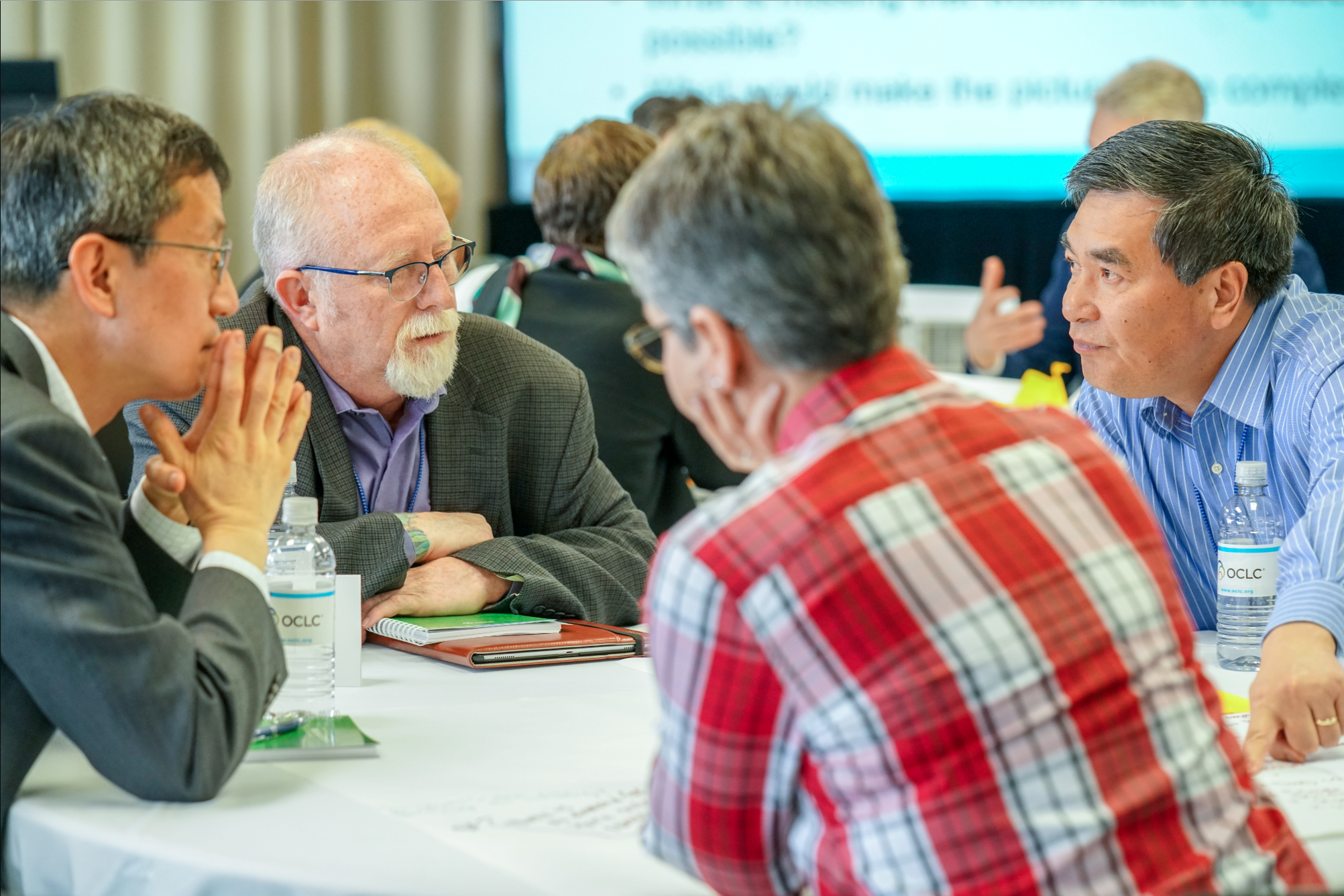As we are at the midpoint of 2021 and looking forward to what lies ahead, I want to take a moment to extend my thanks and gratitude to those of you who are members of the OCLC Research Library Partnership (OCLC RLP). It’s invigorating to see that the programming, expertise, and opportunities to connect continue to resonate with our Partners. Engaging with our Partners, and closely listening to feedback drives the direction and the application of our work.
“Stop and learn” to better meet community needs
During the last year, the RLP team has learned that now is not the time to rush and rely on default practices. To grow, change, and contribute toward better supporting our communities, it is crucial that we pause, reflect, and make the time to reimagine our work. Part of this reimagining is to shift effort up front by planning time at the start of a project or new effort to connect with stakeholders, check assumptions, and invest in relevant learning. This strategy can help to achieve important goals and meet our communities’ expectations. The need to “stop and learn,” a sentiment expressed by Dorothy Berry (Houghton Library, Harvard University) at the Reimagine Descriptive Workflows convening, is a strong signal that we are hearing from our Partners across our programmatic focus areas.
This concept of shifting effort up front strongly informed The Total Cost of Stewardship: Responsible Collection Building in Archives and Special Collections. The Total Cost of Stewardship Framework introduces a holistic approach to responsible management of archives and special collections. This work has been enthusiastically embraced by the archives community and been described as “game-changing.” A major learning gleaned during this work is that responsible stewardship and transparent communication can help build trust with a diverse range of stakeholders.
Metadata innovations
We have also heard loud and clear from our Metadata Managers and others about the importance of more inclusive and anti-racist description. Our 2017 survey on EDI activities in the RLP identified harmful language as a focus area for many of our institutions. Based on what we learned from the Partnership survey, we’ve continued research and action in this area, leading to a grant award from the Mellon Foundation for a major global convening on this topic: Reimagine Descriptive Workflows. In this blog post, Merrilee Proffitt reports on the June convening and lays out our next steps.
The report Transitioning to the Next Generation of Metadata, which was published last year, synthesizes six years (2015–2020) of OCLC RLP Metadata Managers focus group discussions. One of the most downloaded reports on our website, this research informed discussions about the future of metadata across Europe, and we’ve been asked to contribute to many conferences and journals on the basis of this publication.
The OCLC RLP Metadata Managers focus group has made a difference for OCLC staff in understanding the needs of metadata managers at research institutions.
For example, the continued investment of this group in discussing the importance and role of identifiers has been critical to the more than 10 years of investment that OCLC has made in linked data research, which is now moving into production in OCLC services. Additionally, the work on enriching WorldCat with Cyrillic for Russian and other languages has been tremendously impactful. We are now actively expanding that work to the good of all who use WorldCat. This makes those records more useful and those resources more discoverable, in WorldCat and beyond. That is an outcome of group discussions—a small idea that blossomed into action.
What’s new and next for the OCLC RLP
We are currently creating our end-of-year slate, which will include the publication of the RIM in the United States report, webinar and additional reporting out from the NAFAN project, additional updates from the Reimagine Descriptive Workflows project, and many impactful webinars, such as the upcoming, “Ngangaaanha (to care for)—Improving cultural safety at the University of Sydney Library.”
We are also pleased to share information about a new project to identify collaborative models to support the continued availability of the art research collective collection. The Operationalizing the Art Research Collective Collection (OpArt) project will help art libraries identify collaborative, sustainable operational models. OpArt is supported through a grant by the Samuel H. Kress Foundation with significant co-investment from OCLC. Look for more information in the coming months.
Maximize planning with OCLC RLP

I’d like to highlight another way to leverage the RLP Partnership: utilizing the RLP team of experts in strategic planning processes. For example, this past year Senior Program Officer Rebecca Bryant provided direct consultation with senior university leaders as they examined their goals and investments in research information management (RIM) infrastructure. In these consultations, Rebecca not only provided context about RIM systems and their potential to university libraries and senior library staff, but also met with institutional leaders including a VP of research, associate provost for faculty affairs, and a CIO. And, she provided formal presentations to RIM task force committees. Each of our program officers is ready to provide insight for your planning. This is a benefit to your RLP membership, and we welcome the opportunity to serve you.
Looking forward with the OCLC Research Library Partnership
If you would like to learn more about how to get the most out of your RLP affiliation, please contact me or your RLP liaison, and we will be happy to set up a virtual orientation or refresher on our programming for you and your staff. If you are not yet part of the OCLC Research Library Partnership, we invite you to join.
It is with deep gratitude that I offer my thanks to our partners for your investment in the Research Library Partnership. We are committed to offering our very best to serve your research and learning needs.
Rachel Frick directs OCLC’s work and engagement with the Research Library Partnership, a venue for research libraries to undertake significant, innovative, collective action to benefit libraries, scholars and researchers everywhere.


